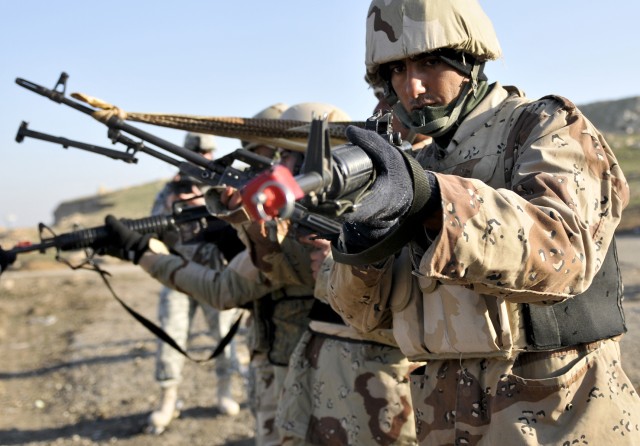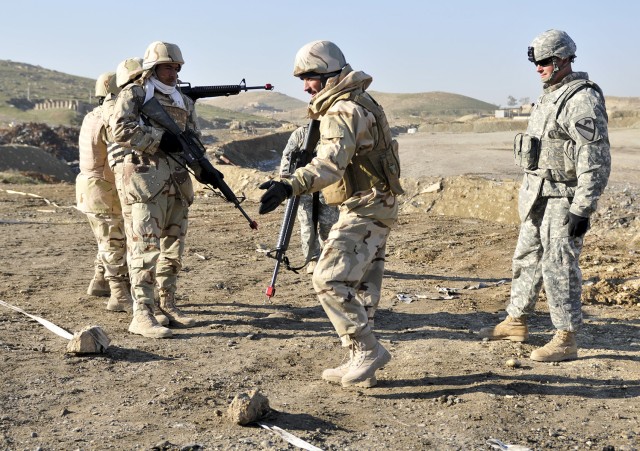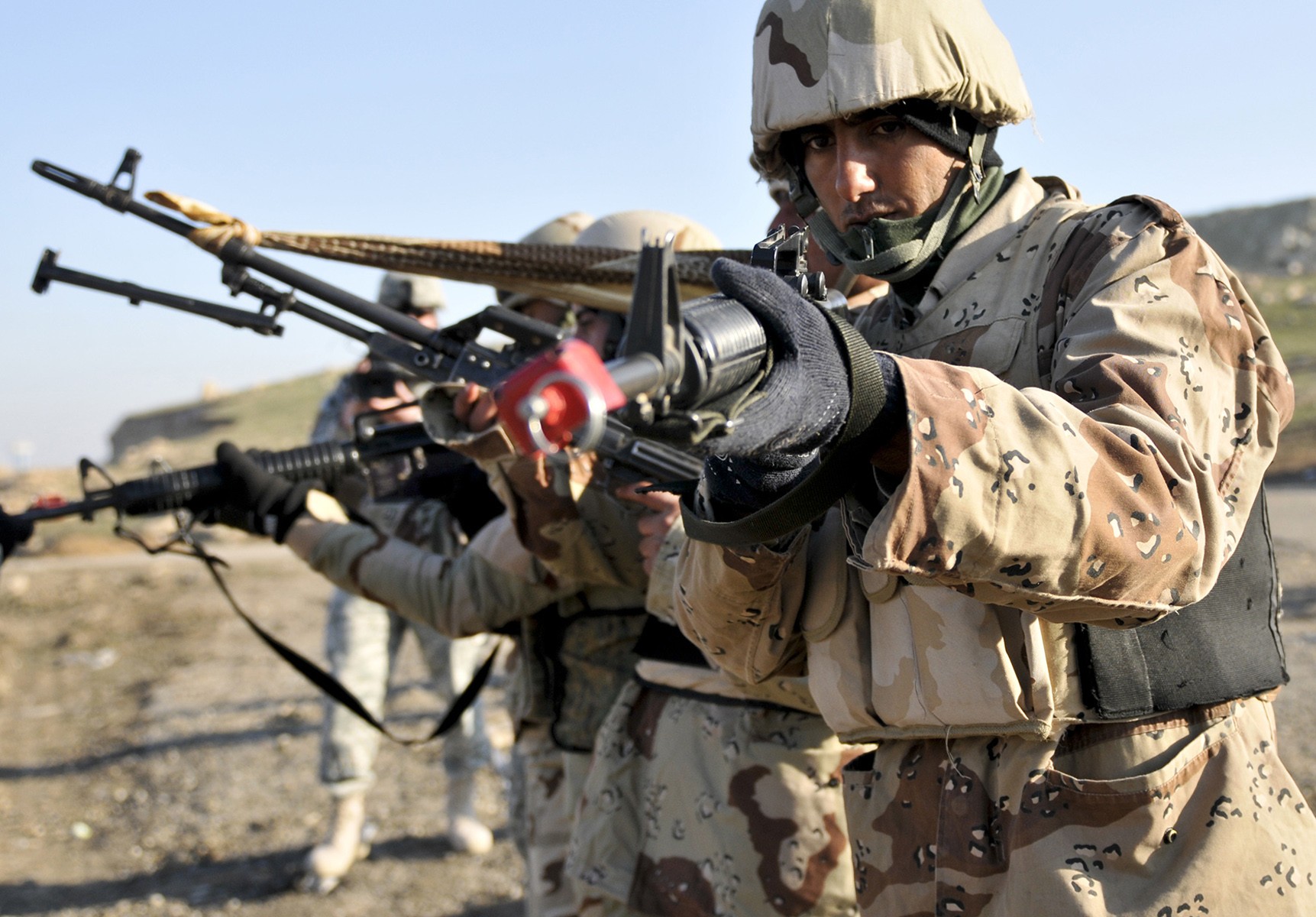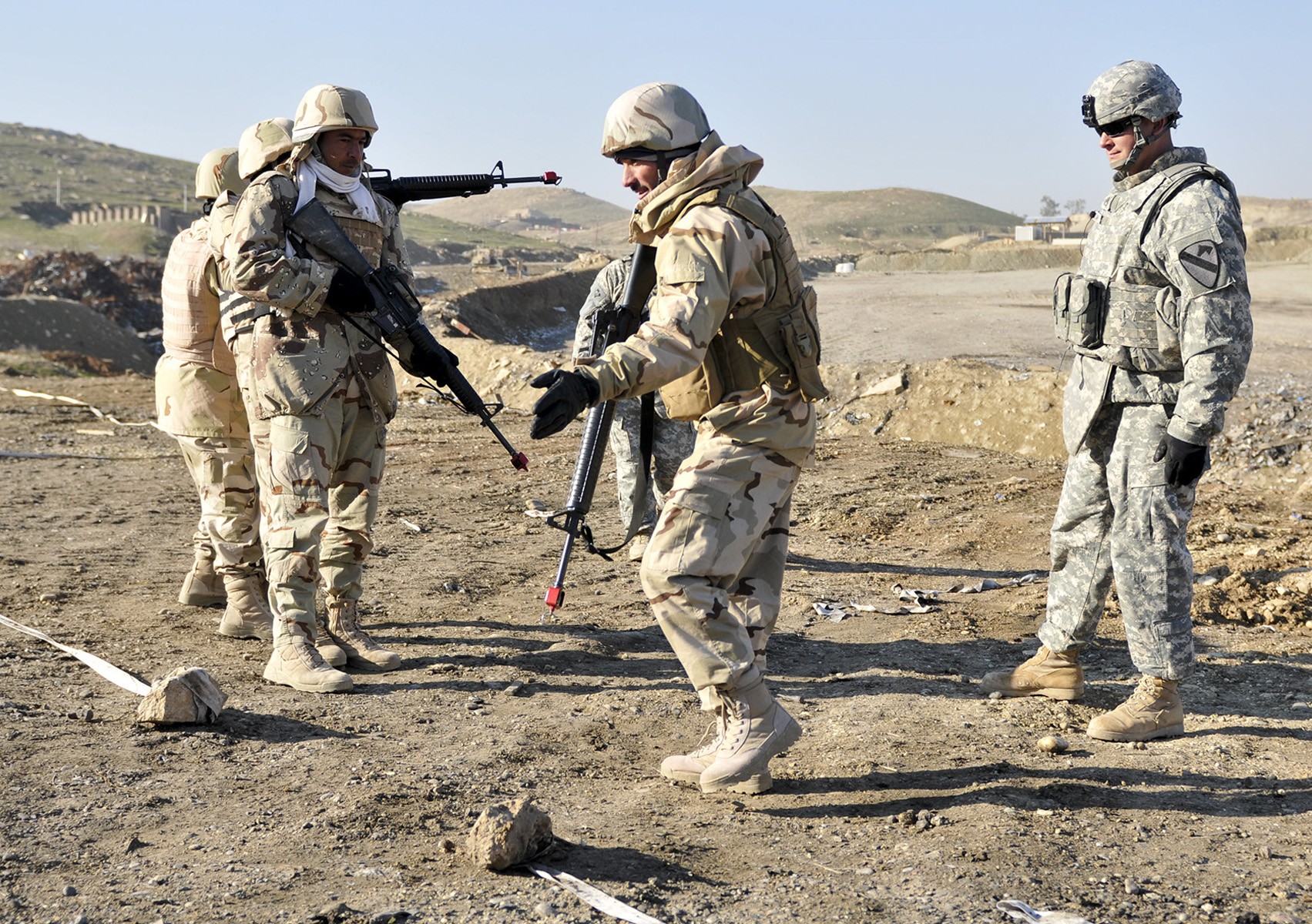GHUZLANI WARRIOR TRAINING CENTER, Iraq -- As Iraqi Army battalions continue to train at the Ghuzlani Warrior Training Center near Mosul, U.S. instructors adapt classes to best aid the current unit's future operational needs.
U.S. mentors from 1st Squadron, 9th Cavalry Regiment, 4th Advise and Assist Brigade, 1st Cavalry Division, adjusted class schedules, focusing on room clearing and techniques for military urban operations for Iraqi soldiers assigned to 2nd Battalion, 11th Brigade, 3rd Iraqi Army Division, Feb. 6.
"This group spends a lot more time in the city of Mosul, so urban operations is something they are going to need more of," said Staff Sgt. Don Gillam, an instructor from Troop C, 1st Sqdn., 9th Cav. Regt.
Gillam and fellow U.S. trainers ran Iraqi squads through a step-by-step process of how to properly approach a building and how to effectively and methodically clear each room safely.
Iraqi soldiers, began the drills with "glass houses," outlines of rooms marked off on the ground, before moving to walled rooms and hard-sites, or buildings as their skills progressed.
"The training is very good for my soldiers," said Sgt. Maj. Saaod Mustafa, senior Iraqi noncommissioned officer at the event. "If they pay attention to this class and practice on it, it will make them better in their jobs."
Mustafa said that the room clearance training is particularly useful to his men, whose operational responsibilities include cordon and search missions in the urban environment of Mosul.
The Ghuzlani Warrior Training Center is very important to the Iraqi Army because it teaches Iraqi soldiers, while building a foundation to train and sustain the force after U.S. forces leave, said Gillam.
Gillam, who spent two years as a drill sergeant at Fort Jackson, S.C., said he has seen distinct growth and progression in the Iraqi troops who successfully completed his classes.
"They're motivated to be out here," he noted. "They like what they're doing. They like learning, and they want to get better."
The Iraqi NCOs within the units are stepping into leadership roles and taking charge of their squads and platoons more effectively than before, Gillam added.
Watching the Iraqi soldiers within the battalion execute the drills, Saaod said he has seen the unit's skills advance through the continued mentorship by his U.S. counterparts.
"My soldiers see a new way of training," he said, noting the knowledge gained from the collective training. "It's a new experience."
Saaod mentioned the hands-on aspect of the training, as well as simulations and training aides, which helped to build motivation among his soldiers.
His second deployment to Iraq, Gillam said the Iraqi Army units have made significant progress and are more willing and able to take control and protect the people of Iraq from external threats.
As succeeding iterations of IA battalions rotate through GWTC during Tadreeb al Shamil, the U.S. role will diminish, Gillam said, with Iraqi cadre assuming more of the training responsibility for the Iraqi units.
Throughout 2011, 3rd IA Div. will rotate its battalions through the 25-day training cycles at Ghuzlani each month as the IA transitions to autonomous military operations.




Social Sharing